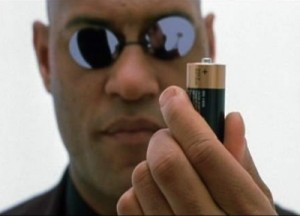There are certainly advantages to having employees accessible 24/7, able to solve problems and respond to employer needs whenever and wherever. But at what cost?
Research released last May by the U.S. Army and UC Irvine demonstrated significantly lower stress levels in subjects denied access to email for five days. They also reported greater ability to focus on their jobs.
This is a good example of the fact that cell phones and related tools of communication have created a conundrum for managers: Do you want employees to be available 24/7, or do you want them performing at their peak levels?
If they’re spending their evenings, weekends and vacations plugged in and on high-alert, they’re not going to return to the office relaxed, recharged and ready for whatever challenges the day might bring.
Employees may resist digital detox
Introverts, in particular, suffer from office intrusions via email or texts after hours. Although they are most likely to be the innovative, creative thinkers companies crave, they won’t perform at their best without frequent periods of detox from the onslaught of stimulation.
Susan Cain, author of Quiet: The Power of Introverts in a World That Can’t Stop Talking, speaks of introverts need for “restorative niches,” both physically and emotionally. They need time out to refill their well, and constantly checking email over the weekend infringes on that.
However, even the employees themselves may resist the idea of digital detox. There’s some thought that we become addicted to the frequent adrenaline charge of another email or text. Dr. Gregory Jantz, author of Hooked, says research indicates social media can rewire our brains so that we crave the stimulation provided by a constant stream of email, and that a certain percentage of people do develop anxiety disorders related to their electronic devices.
There also may be a little residual insecurity after the recession. When so many employees feel lucky just to have a job, they are understandably hesitant to make themselves unavailable, even late at night or for a day or so over the weekend.
4 ways to get employees to unplug — and make it work
 That’s why the idea that digital detox is acceptable and can even be beneficial should come from people managers. What can you do to promote digital detox in your company? How can you convince both leadership and employees that it’s good business to unplug from time to time?
That’s why the idea that digital detox is acceptable and can even be beneficial should come from people managers. What can you do to promote digital detox in your company? How can you convince both leadership and employees that it’s good business to unplug from time to time?
- Get your CEO on board: One thing is for sure, and that’s that those employees at the bottom of the totem pole will not feel comfortable unplugging unless they see that behavior modeled at the top. Demonstrate the business benefits of digital detox to your top management team, not as a perk for employees so much as a way for the company to be more productive in the long run. And then ask them to try it themselves. Maybe they can blog about the experience for employees to read – and then emulate.
- Encourage managers to avoid after-hours pings: When a manager remembers a question or comes up with a great idea on a beautiful Saturday morning, the impulse to communicate with underlings can be difficult to resist. But if leaders understand what that does to their employees’ ability to recharge, they might write the email but delay the send-time until the weekend is over. Or type the text but not hit send until the next morning. They might even hold that thought and have an actual, face-to-face conversation with their employee instead.
- Have your company email turned off after hours: This sounds extreme, but at least one major company has set this precedent. In response to concerns about union employees working overtime, Volkswagen had their email turned off 30 minutes after employees’ shifts end and restarted 30 minutes before the next shift. A survey by PC Magazine indicates that 43 percent of respondents would be in favor of having their email turned off during non-work hours.
- Use digital detox as part of your employee value proposition and recruiting efforts: If your company is successful in integrating acceptance for periodic digital detox, that can become a powerful part of your employee culture and an attention-getting element of your Employee Value Proposition. Digital Detox is also likely to be something your employees will brag about to their friends, and an appealing benefit to mention in your recruiting messaging.
So what happens when we turn off the cell phone and power down the computer?
At first, we may feel a little anxious. What if we’re missing something? But those who give it a try report an increased ability to concentrate and heightened creativity, not to mention lower levels of stress.
How might you test the digital detox theory in your organization?
